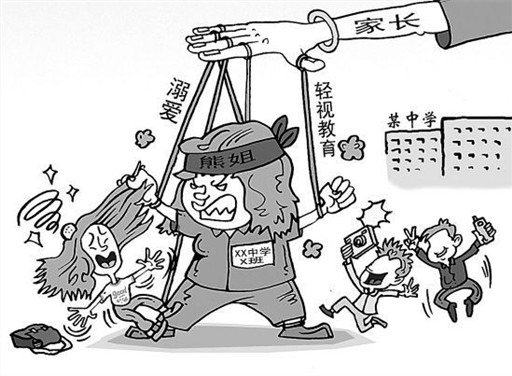China's courts sound alarm on malicious school violence
To mark International Children's Day, many courts across China have released reports about juvenile delinquency and school violence.

One recent survey revealed about a third of primary and middle school students had been bullied, with many schools refusing to admit that such violence takes place in case their reputation is tarnished.
A nationwide campaign against school bullying is currently underway.
A statement from the High People's Court in Beijing shows the city's courts have heard about 200 criminal cases related to school violence in the past five years.
The same statement says 14 percent of these cases involved malicious insults, slaps to the face, victims burned with cigarettes, or stripped naked for photos.
It also says crimes involving assaults, including fighting in public, constitute 78 percent of the school violence cases.
More than 60 percent of the cases were committed by juveniles and a majority of the perpetrators were male, while the victims were almost all students.
Song Yanhui with China Youth University of Political Studies is an expert of youth problems.
"Bullying activities usually take place between parties acquainted with each other. They were from the same class, or from the same school. It's usually committed in the way of the big bullying the small, or many bullying one."
On the same day, Shandong's courts reported local criminal cases involving minors had fallen slightly in the past five years, but violent behavior and even murders accounted for a larger proportion.
And the courts in Tianjin said school violence in the city had increased, mostly involving youth gangs, with junior high school students the most frequent offenders.
School bullying has been rising sharply in China in recent years.
Meanwhile, a number of videos of youngsters bullying or beating up their peers have been uploaded online in recent years.
Song Yanhui says these videos may make the situation worse.
"When teenagers don't know how to handle a problem properly, they may look for solutions on the internet, where they could learn some malicious behaviors that they had never known."
The China Youth & Children Research Center conducted a survey last year.
The results show over 32 percent of the nearly 6,000 primary and middle school students questioned were bullied occasionally, while about 6 percent were constantly bullied by older students.
Schools and families have been urged to do more to improve the situation.
In China, many schools refuse to admit the existence of violence due to concerns over tarnished reputations, while some parents even confuse violent crimes with childish fighting or some insignificant prank, which they respond to with silence.
Meanwhile, there are also calls for a new law on school security, which is expected to clearly define the legal responsibilities of government, schools and families.
Many members of the public are also suggesting tougher penalties, after three Chinese girls got heavy jail terms earlier this year in the US for torturing a schoolmate.
But prosecutor Pan Duwen from Beijing's Haidian District suggests the law may not do everything.
"If there is no change to the way a person thinks, there would be no change to the way the one behaves, even after a jail term. So it's important to change the way of thinking."
A nationwide campaign against school bullying is underway and will last eight months.
But some experts say another option may be to put more social workers on campus.



